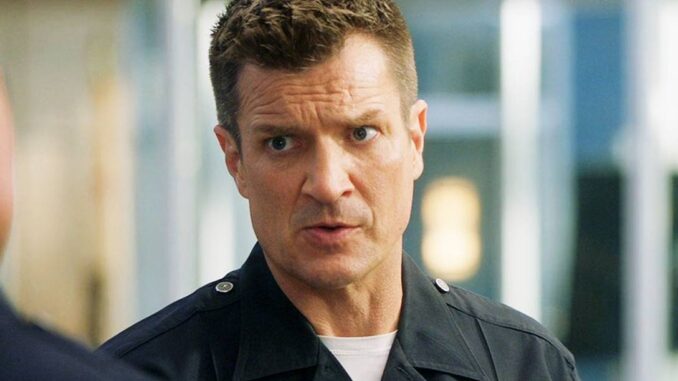
From Sunshine to Spire: Can Prague Solve the Rookie's L.A. Woes?
The sun beats down on Los Angeles, a perpetual promise of opportunity and a relentless spotlight on its simmering problems. Crime is up, morale is low, and the LAPD, even with the earnest enthusiasm of its rookies, is struggling to keep pace. Enter “The Rookie,” season 8, and a radical, albeit fictional, proposition: move a cohort of fresh recruits to Prague for a year, ostensibly to “fix” an L.A. issue. This bold move, while potentially revitalizing the show’s narrative and visual palette, raises the question: can a change of scenery truly address deeply ingrained systemic issues, or will it simply transplant existing problems while sparking a whole new set in the heart of Europe?
The premise, as presented, feels almost satirical. The notion that taking rookies from the concrete jungle of Los Angeles and placing them in the cobblestone streets of Prague will magically solve the complexities of American policing is inherently flawed. What "L.A. issue" are they supposed to fix? Is it excessive force, community mistrust, or simply a lack of experience? Each of these problems is multifaceted and requires nuanced solutions rooted in understanding the specific context of Los Angeles, its history, and its diverse communities. Transplanting these rookies, even with the best intentions, ignores the crucial importance of local knowledge and cultural sensitivity.
One can imagine the fish-out-of-water scenarios. Rookies, accustomed to the stark realities of gang violence and systemic racism, are now tasked with navigating the nuances of Czech culture, language barriers, and a legal system vastly different from their own. Perhaps the intention is to broaden their perspective, to expose them to different policing models and foster empathy. This could be a positive outcome, encouraging them to question the assumptions and biases they’ve developed in L.A. However, without proper training and preparation, this cultural immersion could easily backfire. Imagine the potential for misinterpretations, unintentional offenses, and ultimately, the perpetuation of harmful stereotypes.
Furthermore, the move to Prague introduces a host of new challenges. The logistical hurdles alone – navigating visas, housing, and cultural integration – are daunting. But beyond that, the show has an obligation to portray Prague responsibly. Are the rookies working alongside Czech police? Are they engaging with the local community? Or are they simply operating in a vacuum, their presence perceived as an unwanted intrusion? The potential for conflict, both internal and external, is immense. The writers must carefully consider the ethical implications of transplanting an American policing narrative into a foreign context.
However, amidst the potential pitfalls, there lies an opportunity. The move to Prague could force the rookies, and the audience, to confront the inherent biases that often underpin law enforcement. By placing them in a completely unfamiliar environment, the show can explore the concept of justice from a different perspective. Imagine a scenario where a rookie, faced with a situation he would have handled with force back in L.A., is now forced to rely on communication, de-escalation, and cultural understanding. This could lead to profound personal growth and a re-evaluation of the very principles they were taught in the academy.
Moreover, the change of scenery offers a much-needed visual and narrative refresh. After seven seasons of navigating the familiar streets of Los Angeles, the baroque architecture and historical landmarks of Prague provide a captivating backdrop. This could inject new life into the show, attracting a wider audience and offering the writers fresh storylines and character arcs. Imagine the rookies investigating art heists, navigating the labyrinthine streets of the Old Town, or learning to work alongside Czech officers with vastly different training and perspectives.
Ultimately, whether the Prague experiment will “fix” the L.A. issue remains to be seen. The success of this radical shift hinges on the writers' ability to navigate the complexities of cultural exchange, address the systemic issues within the LAPD, and avoid perpetuating harmful stereotypes. The move to Prague presents a high-stakes gamble, one that could either revitalize “The Rookie” or expose the inherent limitations of transplanting solutions from one context to another. If done right, it could be a powerful exploration of cultural understanding and the challenges of modern policing. If done poorly, it risks becoming a tone-deaf and ultimately, a deeply problematic misstep. Only time, and season eight, will tell.